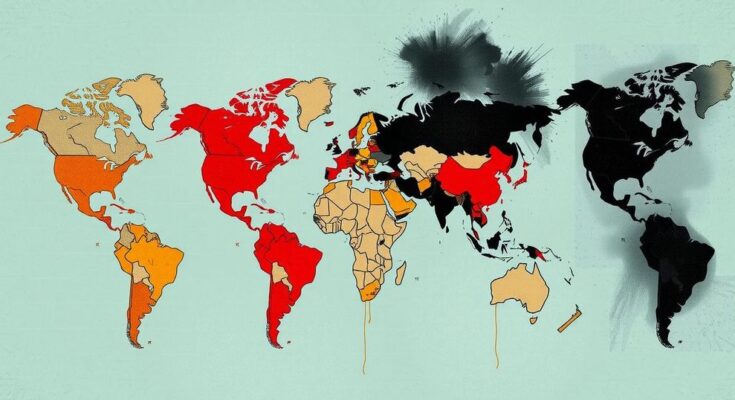This briefing highlights significant human rights concerns in Syria, Iran, and the Central African Republic. The UN has raised alarms over the targeting of minorities in Syria and a surge in executions in Iran. In contrast, CAR has improved protections for human rights defenders through new legislation, marking a positive step towards safeguarding civic freedoms.
The United Nations human rights office, OHCHR, has voiced concern about escalating violence against members of the Alawite community in Syria, emphasizing the necessity for all parties to adhere to international humanitarian law and protect minority rights. Reports indicate that Alawite men have been killed since the removal of the Assad regime, prompting OHCHR spokesperson Liz Throssell to call for accountability and protection for vulnerable groups.
In Iran, the OHCHR highlighted a dramatic surge in the number of executions, reaching at least 901 in 2024 alone, with the majority associated with drug offenses but also targeting dissenters following the 2022 protests. The UN High Commissioner for Human Rights, Volker Türk, condemned the increase in executions, asserting that the death penalty is fundamentally incompatible with the right to life and poses an unacceptable risk of wrongful executions.
Meanwhile, in the Central African Republic (CAR), the adoption of a new law aimed at safeguarding human rights defenders has been welcomed internationally. Expert Yao Agbetse described the legislation as historic, providing crucial protections for those combating injustices and ensuring they can operate without the fear of reprisals. This development represents a significant advancement in human rights within the CAR, marking a positive trajectory for the country’s governance and civic freedoms.
The article discusses recent human rights developments across three countries: Syria, Iran, and the Central African Republic. In Syria, there is a growing concern for the safety of the Alawite community post-Assad, aligning with international humanitarian principles. Iran faces scrutiny from the UN for a sharp rise in executions, particularly for politically motivated offenses. Conversely, the Central African Republic has enacted legislation enhancing protections for human rights defenders, signaling improvement in civic freedoms and democratic progress.
In summary, the current geopolitical landscape reveals stark contrasts in human rights situations across Syria, Iran, and the Central African Republic. The UN’s call for accountability in Syria and condemnation of rampant executions in Iran underscore a pressing need for adherence to humanitarian laws. Conversely, CAR’s legislative progress reflects hopeful advancements for human rights protections, heralding a more inclusive and responsive governance structure. Governments and global entities must continue to address these pressing issues, working collaboratively to uphold fundamental human rights and ensure accountability for violations.
Original Source: news.un.org




